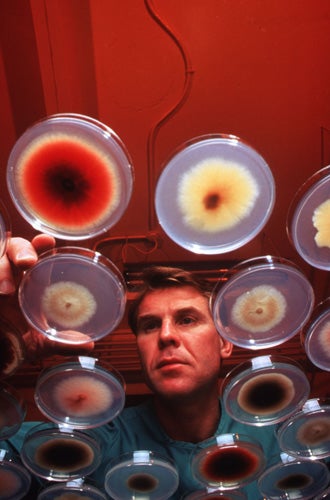
Your support helps us to tell the story
From reproductive rights to climate change to Big Tech, The Independent is on the ground when the story is developing. Whether it's investigating the financials of Elon Musk's pro-Trump PAC or producing our latest documentary, 'The A Word', which shines a light on the American women fighting for reproductive rights, we know how important it is to parse out the facts from the messaging.
At such a critical moment in US history, we need reporters on the ground. Your donation allows us to keep sending journalists to speak to both sides of the story.
The Independent is trusted by Americans across the entire political spectrum. And unlike many other quality news outlets, we choose not to lock Americans out of our reporting and analysis with paywalls. We believe quality journalism should be available to everyone, paid for by those who can afford it.
Your support makes all the difference.
What courses? Where to start? Biology; biological sciences; biochemistry; microbiology; molecular biology; physiology; marine biology; ecology; environmental biology; forensic biology; natural science; anatomy; zoology. The list goes on.
What do you come out with? A BSc
Why do it? "Biological sciences at university opens up an enormously broad world of diversity, both in its literal sense of life on earth, and also in the context of modern developments in all types of life sciences from molecules to genes, ecology to evolution. It enables students to cover the whole range of topics, or alternatively to specialize, ranging from, for example, marine ecology to cell biology. As well as providing one of the most exciting subjects in the modern world, graduates acquire a broad range of talents which are highly suitable for many careers outside biology. Thus many students will go on to become medics, accountants, journalists, teachers or lawyers." - Dr Martin Speight, admissions coordinator for biological sciences and reader in zoology, University of Oxford
What's it about? The science of life and organisms. Biological sciences can be studied as a general degree, but more commonly, it is an umbrella term used to cover an endless list of specialist areas that are concerned with investigating the science behind living things. Exactly what you’ll be doing on your course will depend completely on what you choose to study, from human biology to genetics. Most courses will have core modules in cell and molecular biology, microbiology, physiology and adaptation, but later on you’ll find yourself becoming far more specialized. Whatever you choose to study though, you’ll be sure to be spending a lot of time in the lab, with personal research taking up a larger proportion of your time as your degree progresses.
Study options: Three years full-time generally, although some universities do offer a year abroad. In Scotland you study for four years and get an MSc. If studying alongside a language you’ll most likely spend a year abroad, while a minority offer bioscience degrees a sandwich year in which to work in industry.
What will I need to do it? Surprisingly enough, an A-level in biology is a given when it comes to most institutions’ entry requirements and many ask for a second science subject as well. Biological sciences at Oxford and Cambridge ask for A*AA and at Imperial it’s AAB for its biology course. Obviously, grade requirements vary by university – Anglia Ruskin asks for 240 UCAS points (three Cs at A level).
What are my job prospects? If you want to specialise in your chosen field, you’re going to have to go into further study, and over a third of students do. Biology and physiology students will find they have a good footing from which to transfer to medicine, while others go to work in research laboratories or the pharmaceutical or biotech industries. According to The Times’ Good University Guide 2012 around one quarter of graduates find themselves in graduate-level jobs within six months of finishing, while another quarter are employed in non-graduate roles. Starting salaries average just over £19,000 for graduate-level positions, placing biological science in the bottom 20 for subjects’ graduate earnings.
Where’s best to do it? As in a lot of cases, Cambridge tops the Complete University Guide 2012, with Oxford close behind, and Imperial in third. Sheffield, Durham, Leicester and York follow. It’s students at Gloucestershire that are most satisfied, however, with York, East Anglia and Huddersfield also faring well in this area.
Related degrees: Agriculture; earth and environmental sciences; ecology; medical sciences.
Join our commenting forum
Join thought-provoking conversations, follow other Independent readers and see their replies
Comments